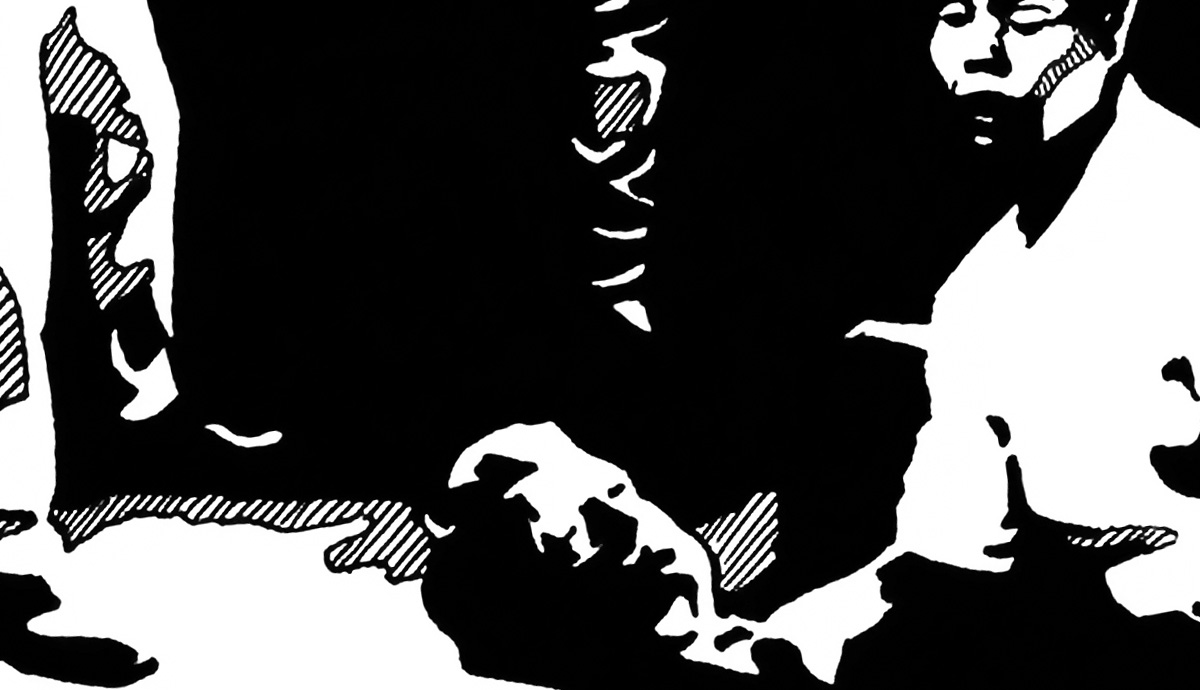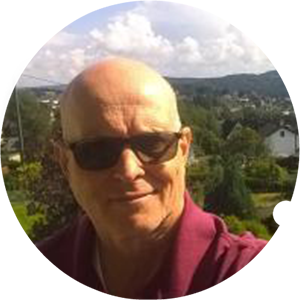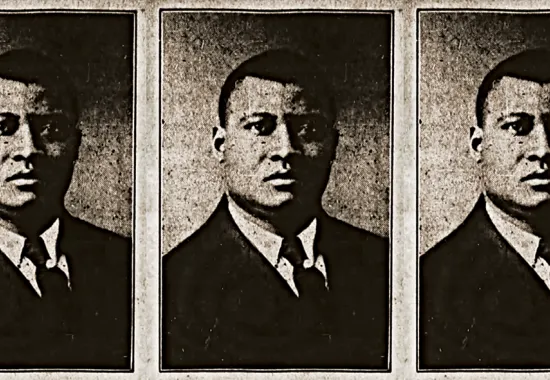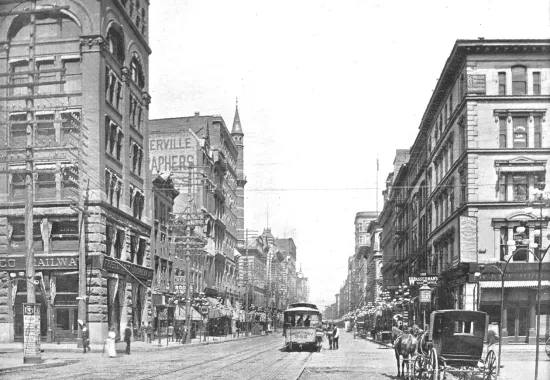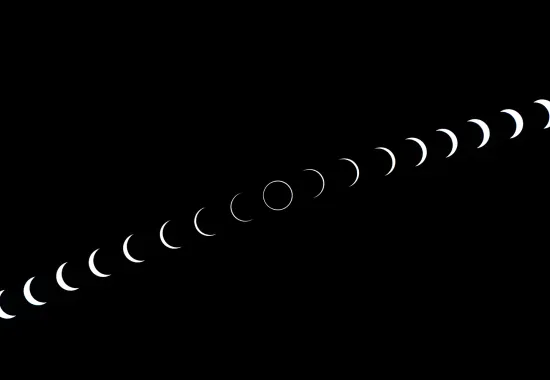Bobby’s Hair: A Personal Essay
When I find myself barking rudely at the TV these days, ranting over the bombast and vitriol that now taints our democracy, I sometimes muse over the seeding of my ardent political prejudices, and that day on a school playground in 1963 when kids kept yelling “Kenny’s dead! Kenny’s dead!” At the time I had to ask myself which Kenny they meant since I wasn’t friends with any Kenny and wasn’t sure we had one in class. Then things got weird, teachers cutting our recess short, the abrupt school assembly in the multi-purpose room, and a grown woman, the principal, weeping in front of the entire student body.
His right hand, fingers splayed evenly, brushed the wispy strands of hair from his forehead as he left the podium, followed moments later by screams, and the crush of darkness on our social destiny.
I can’t recall my dad’s reaction after I got home from school that Friday, telling him what he already knew, that our President had been killed in a place called Dallas. I suppose it was that collective civil shock that kept him stoic. Only when constant news reports replaced my favorite TV shows, guys sitting at desks and talking, talking, talking for days on end, did I come to appreciate the magnitude of the tragedy.
In those hardscrabble days, John pursued a PhD in political history at UCLA and abandoned a promising career in the private sector to eke out a living in academia. Working menial jobs between classes to support his budding family, he finally landed a teaching post at an obscure college in northern California and moved the five of us, along with our black Lab-mix, Tick-Tock, nearly 700 miles to a quiet coastal hamlet in the summer of ’65.
The exodus from a smoggy metropolis to the evergreen hills of Humboldt County was a welcome adventure for us and especially my mother Gisela. Leaving her German homeland in 1955 with infant me in her arms to live with ex-G.I. John and his parents in L.A., she reveled in a return to temperate latitudes more aligned with her bucolic upbringing: expansive forests, rain-swelled rivers, and tranquil oceanside lagoons where my brother, sister and I would spend so many blissful Sundays.
Dad thrived in his lecture classes at Humboldt State College, earned accolades from peers and students on his teaching skills. But our relocation had its downsides: a car killed our precious Tick-Tock just months after we’d settled; dad spent summers away teaching in Los Angeles to earn extra money between semesters; and when his brother’s three-year-old son Stevie died from an infection, John nearly died himself in a car wreck while driving to the funeral in a grief-addled daze.
Yet by spring of 1968 our family had secured a comfortable niche in the community. John had finished his dissertation and was about to receive his doctorate. Knowing that the big bucks in academia went to administrators, he landed a deanship at the college. And to satisfy some latent urge to engage in political activism, he joined a presidential campaign.
•
Senator Robert F. Kennedy had entered the Democratic primary race in March 1968 and created turmoil in the party. Being a left-leaning Democrat himself, John welcomed the pragmatic idealism of the brash young Bobby and fully embraced the Kennedy mystique.
As we played catch in the driveway one afternoon he virtually bragged that he’d signed on with the local Kennedy campaign committee and would manage a grass-roots canvassing office near the campus.
“That’s great, dad,” I probably said, although at 13 I didn’t know or care much for politics. Still, I could see over the next few weeks that his involvement with the campaign, interaction with organizers in Sacramento, and managing a group of impassioned students kept him in a lofty mood.
One Friday in late April dad said he would pick me up early from school and take me to the airport because Bobby Kennedy was flying in for a whirlwind visit to give a couple speeches and touch base with the local staff. John thought it important that I be exposed to this impromptu event and as he drove, lectured me on various aspects of the heated presidential race: how Lyndon Johnson had inflamed a horrible war in Viet Nam; why the Democrats’ counter-candidate, Eugene McCarthy, espoused flawed left-wing platitudes; and the threat posed by Republican frontrunner “Tricky-Dick” Nixon’s paranoid conservatism. In dad’s view, Bobby was the obvious choice for President, seasoned by years as his slain brother’s attorney general and a key arbiter in the Cuban Missile Crisis. Above all, he was a Kennedy, a tough Irish-American scion from the most popular and idolized family in the country.
Something else about Bobby that my dad admired, though he never really admitted to: the hair. We kids often chided him about his bald pate and he always maintained that the loss of his Brylcreem’d coif by age 35 didn’t bother him much. But it did, of course. As I would eventually learn from my brooding mother after he died, John prided himself on his charming sex appeal, a vanity which ignited some painful episodes in their fiery marriage.
Personally, I had nothing to worry about at that early age and envied no one when it came to my own thick brown locks that cascaded over my forehead, as Bobby’s did, that we would each brush back ever so smoothly with slow, deliberate sweeps of our hands. (Sadly, by age 19, the thick strands of keratin with which I’d forged such a strong identity began to cascade OFF my head and by age 30, I too was bald.)
•
A crowd showed up at the airport, bigger than anticipated, but being a campaign staffer John was able to park in the VIP lot set up near the modest terminal. Unsure of the logistics surrounding Bobby’s arrival, he told me to mingle with the throng while he scoped things out; if I needed to find him he’d be on the tarmac with the ad hoc welcoming committee.
I had some awareness that spring of how traumatized our nation had become, weeks after the shooting of the eloquent civil rights activist Martin Luther King, Jr., with images of protests and riots flashing across our TV every night at dinner time. Still, I couldn’t really fathom the depth of the rifts separating liberals from conservatives, Republicans from Democrats, racists from radicals. Yet at the airport that day I saw it, the hopeful fervor animating the faces of hundreds strung along the fence eager to see a mop-haired Kennedy, the brother of the man who, deservingly or not, had attained the status of America’s beloved martyr.
Not long after we arrived, a twin-engine prop-plane approached from the south and floated gracefully onto the runway. People cheered when it touched down, not even sure if it was Bobby’s plane. That my dad would soon greet and chat with the candidate infused me with a sense of privilege and compelled me to push my way through the crowd to a place at the fence. There, I had a full view of the silvery aircraft as it taxied to a line of cars, the local campaign staff aligned in giddy expectation.
People jostled me from behind, craned over the fence to catch a better view as the propellors wound down and a boarding ladder was wheeled into place. The cabin door opened, a stewardess (as they were called back then) showed herself, and then…
“There, look, I see him!”
“He’s shorter than I thought!”
“Is that Ethel with him?”
“No, I don’t think so.”
I could see my dad there, taller than the others, his bald head shiny in the springtime sun as Bobby descended the ladder and merged with the welcoming group. Did John just shake his hand? Was my father talking with him now? I saw them get into the cars near the plane, one of them a Chevy convertible, and roll towards the crowd.
Anxious adults pressed against the fence, pushed my face to the wire. A girl yelled my name, just feet away. I knew her from school, Sharon, a cheery tomboy, we’d been on some teams together at recess.
“Marc, hey, my mom’s here, she loves Kennedy!” she blurted as she sidled up next to me.
“Hey Sharon,” I yelled over the buzz, “my dad brought me, he works for Kennedy, he runs the staff around here!”
A few people reacted, peered down to acknowledge me.
“Wow, that’s really neat!” she chirped.
The cars maneuvered past a passenger plane parked near the terminal, swung back towards the fence. The collective energy surged, created a wave effect as Bobby’s red convertible idled along, the candidate perched on a seat leaning towards the people, pressing their hands.
Sharon nudged me, her face inches from mine. “My mom thinks he’s so cute…she loves his hair!”
Reflexively, I swept some strands off my forehead.
In moments the frenzied adulation rang in my ears; people cheering, seeking affirmation with a look or a touch from Bobby. The sleek Impala was just feet away as he reached out to connect with his acolytes.
Sharon jumped up and down beside me. “Here he comes, HERE HE COMES!”
The broken clouds over the airport glowed platinum white behind Bobby’s angular face hovering ten, now five feet away. Was his smile genuine, sincere, a window to honest intentions? I did not know. But it was there now, over me, and his gentle words in that Old Boston lilt, “Hello, how are you…nice to see you…hello….”
He took my hand softly and I squeezed. Yes, I got it, the jolt of optimism, the spark that could inspire our restoration as a diverse society pitched in harmony and committed to peace, his windblown hair an emblem of dignity for our generation.
“You shook his hand!” Sharon bleated.
Yes, I did. And when John rumbled past, crammed among a half-dozen other staffers in a smoky blue Dodge, I waved at him and he waved back, as joyful as I’d ever seen him.
•
Witnessing my father cry silently in his chair that day in early June, I knew then the depth of his grieving, not only for another fallen Kennedy but for the terminus of a progressive conscience. Together we watched the journey of the flag-draped casket, borne on its funeral train from Saint Patrick’s Cathedral to Arlington National Cemetery over the voice of Walter Cronkite who once again channeled a nation’s mourning.
In the coming decades we discovered the sinister side to the Kennedy mystique: the corruption, scandals, and innuendo that kept the legacies of Jack, Bobby, and Ted rooted to father Joe’s brazen ambition, under clouds of shady morality. My father, too, exposed his own mortal flaws with awkward admissions of marital betrayal, alcoholic excess, and a lingering cancer brought on by decades of smoking.
Now, as I struggle to filter the media Sturm und Drang bombarding us daily, I’m grateful for the perspective—I’m not willing to call it wisdom just yet—forged by 60-plus years of life. Yet I suspect my own political idealism was never so pure, nor so visceral, as in that exalted moment when Bobby’s touch promised the abolition of bias, and victory over brokered hysteria.
•
A few years after my dad passed I took a trip to Washington D.C. and visited Arlington Cemetery. Strolling the hallowed grounds with solemn intent, I found Jack’s eternal flame and some yards away, Bobby’s stark and unassuming white cross on a sloping green lawn, as if he were eternally humbled to be taken so young, so shockingly that night at the Ambassador Hotel.
“And now it’s on to Chicago and let’s win there.” His right hand, fingers splayed evenly, brushed the wispy strands of hair from his forehead as he left the podium, followed moments later by screams, and the crush of darkness on our social destiny.
Recommended
The Ballad of Ollie Jackson
A Picture of Stack Lee
Crossing Paths


